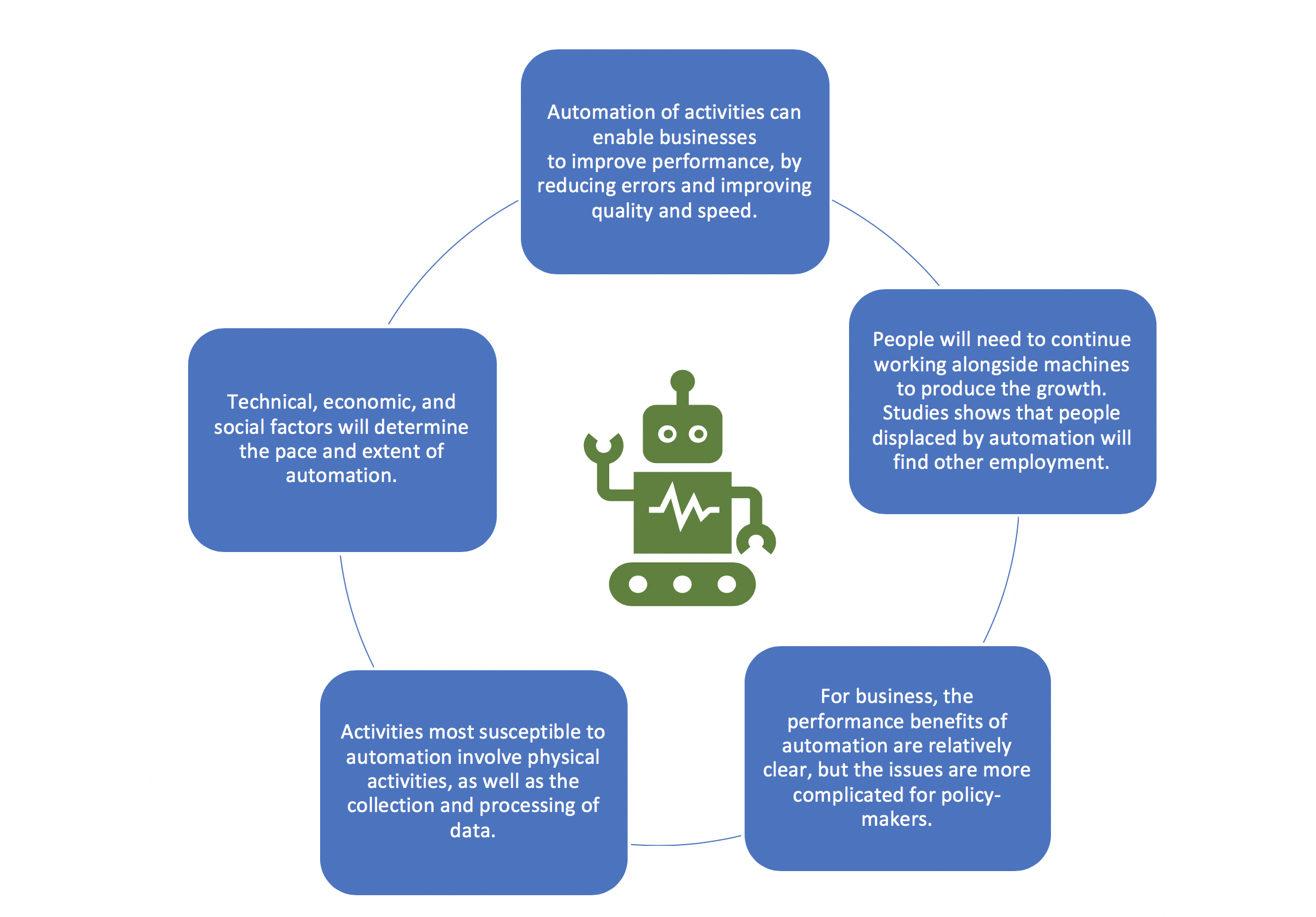Stefanie Stantcheva, a renowned economist from Harvard, has made waves in the field of economics with her groundbreaking research on tax policy and innovation. Recently honored with the prestigious John Bates Clark Medal by the American Economic Association, this award highlights her significant contributions as an under-40 scholar shaping today’s economic landscape. Stantcheva’s work delves into vital questions surrounding public finance, shedding light on how tax systems can influence economic behavior and drive innovation. “The tax system is something so powerful that it can essentially make or break an economy,” she eloquently stated, reflecting her deep understanding of the subject. As the Nathaniel Ropes Professor of Political Economy, Stantcheva continues to inspire students and colleagues alike, promising a thrilling future for Harvard economics.
In the realm of economic research, Stefanie Stantcheva stands out for her innovative approach to understanding fiscal policies and their ramifications. Recently celebrated for her exceptional work with the John Bates Clark Medal, she represents a new generation of economists devoted to unpacking complex issues like taxation and its effects on societal dynamics and technological advancement. This recognition by the American Economic Association underscores her impressive ability to analyze the intersection of economic behavior and policy-making. Through her establishment of the Social Economics Lab, Stantcheva is at the forefront of exploring how emotional perspectives and mindsets influence policy perceptions. By navigating these intricate themes, she plays a crucial role in redefining our understanding of economics in the modern age.
Stefanie Stantcheva: A Pioneer in Tax Policy and Innovation
Stefanie Stantcheva, as the esteemed recipient of the John Bates Clark Medal, stands out as a trailblazer in the realms of tax policy and innovation. This honor is awarded by the American Economic Association, recognizing economists under the age of 40 who have exhibited exceptional contributions to their fields. Stantcheva’s work specifically illuminates how tax systems can either catalyze or stifle economic progress, a crucial insight as global economies navigate the complexities of fiscal policy. Her research, particularly the 2022 paper titled “Taxation and Innovation in the 20th Century,” sheds light on how significant shifts in tax policy directly affect the elasticity of innovation, revealing critical connections that can influence public finance strategies across nations.
The deep exploration of tax policy conducted by Stantcheva highlights not only the immediate impacts on innovation but also broader implications for economic behavior in society. By examining the responsiveness of innovation to changes in taxation, she argues that a well-structured tax policy is essential for fostering an environment where creativity and entrepreneurship can thrive. This perspective is vital for policymakers who seek to balance revenue generation with incentives that spur economic advancements, making her contributions remarkably relevant for contemporary economic discussions.
The Importance of Tax Policy in Economic Dynamics
Tax policy plays a pivotal role in shaping economic dynamics, influencing everything from individual behavior to innovation outcomes. Stantcheva’s insights emphasize that the design of tax systems can either boost or hinder the entrepreneurial spirit, directly impacting the level of innovation within an economy. For instance, when tax frameworks are set in a manner that rewards risk-taking and new ventures, it encourages a culture of innovation that can lead to groundbreaking advancements and economic growth. Conversely, poorly structured tax systems can dissuade individuals and businesses from investing in innovative projects, resulting in stagnation.
Moreover, Stantcheva’s research illustrates the high elasticity of innovation in response to tax changes, suggesting that entrepreneurs are highly sensitive to the tax environment. This relationship underscores the necessity for governments to fine-tune tax policies to not only enhance revenue but also stimulate economic creativity. As society grapples with challenges like climate change and socio-economic mobility, a nuanced understanding of how tax policies interact with innovation becomes increasingly critical for sustainable economic development.
Celebrating Economic Contributions: The Clark Medal Legacy
The John Bates Clark Medal is a prestigious accolade in the field of economics, and its legacy is marked by the recognition of exceptional young economists like Stefanie Stantcheva. Awarded annually by the American Economic Association, this medal celebrates contributions that push the boundaries of economic thought, particularly those that influence public policy and societal welfare. Stantcheva’s receipt of this honor highlights her impactful research focusing on tax policy and its essential role in fostering innovation and economic growth.
Each year, the nomination and selection process for the Clark Medal brings attention to emerging talent within the economics community, allowing for a celebration of groundbreaking ideas that can reshape the future. The medal not only honors individual achievements but also draws attention to the vital importance of economic research in informing policy debates and guiding governmental actions. Stantcheva’s award reflects not just her personal career milestones but also the collective progress of economics as a discipline dedicated to enhancing societal prosperity.
Harvard’s Role in Shaping Economic Thought Through Research
Harvard University has long been a cornerstone in the development of economic thought, producing influential scholars who shape the landscape of economics globally. Stefanie Stantcheva, as the Nathaniel Ropes Professor of Political Economy, exemplifies the institution’s commitment to rigorous research and innovative ideas. Her work, particularly in public finance and tax policy, resonates deeply within the academic community and beyond, driving meaningful discussions on how best to structure taxes in today’s complex economic environment.
The university’s environment fosters collaboration and interdisciplinary dialogue, which is reflected in Stantcheva’s founding of the Social Economics Lab. This initiative aims to delve into diverse economic issues such as trade, immigration, and social mobility, expanding the boundaries of traditional economic analysis. By marrying empirical research with theoretical exploration, Harvard continues to nurture a generation of economists equipped to tackle pressing global challenges, ensuring that their contributions remain relevant and impactful.
The Role of the American Economic Association in Advancing Economics
The American Economic Association (AEA) plays a crucial role in advancing the field of economics, and recognizing outstanding contributions through awards such as the John Bates Clark Medal is central to its mission. Established to support and promote economic research, the AEA not only honors individuals like Stefanie Stantcheva but also enhances public understanding of economic issues. The association serves as a platform for economists to share innovative ideas, connect with peers, and collaborate on groundbreaking research that can have far-reaching implications for policy and practice.
Furthermore, the AEA actively encourages discourse around pressing economic challenges, facilitating conferences and publications that highlight research findings relevant to contemporary issues. By championing young, talented economists, the AEA ensures a continuous influx of fresh perspectives that invigorate economic discussions. This ongoing commitment to fostering a vibrant community of economists is vital for addressing global economic challenges and ensuring that research remains aligned with the needs of society.
Innovation: The Catalyst of Economic Progress
Innovation is often seen as the lifeblood of economic progress, and recent research underscores its critical importance in driving growth and improving living standards. As highlighted by Stefanie Stantcheva’s work, the relationship between taxation and innovation is particularly salient; a well-constructed tax policy can create an environment conducive to new ideas and entrepreneurial endeavors. Policymakers must recognize the significance of innovation as a primary driver of economic activity, particularly in an era increasingly defined by technological advancements.
By fostering conditions that allow innovation to flourish, economies can not only enhance productivity but also address various societal challenges, such as climate change and income inequality. Stantcheva’s findings play a vital role in this context, emphasizing how changes in the tax environment can either promote or hinder innovative activities. Thus, cultivating a supportive ecosystem for innovation is essential for sustainable economic development, making it imperative for legislators to consider the long-term effects of their tax policies.
Understanding Economic Behavior Through Social Economics
The field of social economics bridges the gap between economic theory and the realities of human behavior, presenting a much-needed perspective in understanding how individuals make economic decisions. Under the leadership of Stefanie Stantcheva, the Social Economics Lab at Harvard endeavors to explore these intersections, focusing on how perceptions, emotions, and social contexts influence economic outcomes. By examining behavioral economics, researchers can better understand the motivations behind economic activities, providing invaluable insights that traditional models might overlook.
This approach is essential in crafting policies that resonate with the public and effectively address economic disparities. As Stantcheva’s work illustrates, understanding the underlying psychological factors that shape economic behavior can lead to more effective and equitable tax policies. By fostering a deeper comprehension of how people view economic issues, the Social Economics Lab aims to contribute to the development of policies that not only stimulate growth but also maintain social cohesion.
Future Directions in Economic Research
The future of economic research is poised to tackle an array of issues that are both complex and interrelated, necessitating innovative approaches and fresh perspectives. With young economists like Stefanie Stantcheva leading the charge, emphasis on understanding the implications of tax policy on innovation and broader economic behavior is becoming increasingly important. The evolving landscape of global economics, characterized by rapid technological change and shifting social paradigms, presents unique challenges that require thoughtful investigation and nuanced solutions.
As researchers delve into upcoming topics, such as the relationship between emotions and economic policies, the potential for groundbreaking work expands. By exploring the cognitive and emotional dimensions of economic decision-making, economists can craft policies that are not only effective in terms of numbers but also resonate on a human level. Stantcheva’s contributions to these discussions highlight the importance of interdisciplinary research in navigating the complexities of modern economies, ensuring that the future of economic research remains relevant and impactful.
Frequently Asked Questions
Who is Stefanie Stantcheva and what is her significance in Harvard economics?
Stefanie Stantcheva is a prominent economist at Harvard University, awarded the prestigious John Bates Clark Medal by the American Economic Association. Known for her groundbreaking research in tax policy and innovation, her work explores how public finance impacts economic behavior, which has significant implications for Harvard economics and beyond.
What contributions did Stefanie Stantcheva make to the field of tax policy?
Stefanie Stantcheva’s contributions to tax policy include her influential research highlighting the relationship between taxation and innovation. Her 2022 paper, “Taxation and Innovation in the 20th Century,” assesses how changes in tax policy can significantly affect the quantity of innovation, revealing that higher taxes can hinder economic activity.
What are the key themes of Stefanie Stantcheva’s research?
The key themes of Stefanie Stantcheva’s research include tax policy, innovation, public finance, and economic behavior. Her work often investigates the effects of taxation on innovation and social mobility, aiming to provide insights that can lead to better economic policies.
What recognition did Stefanie Stantcheva receive in 2025?
In 2025, Stefanie Stantcheva was awarded the John Bates Clark Medal, an honor given by the American Economic Association recognizing significant contributions to economics by an individual under 40, marking her as a leading figure in her field.
How does Stefanie Stantcheva’s work influence economic policy?
Stefanie Stantcheva’s work greatly influences economic policy by demonstrating how well-designed tax systems can promote innovation and economic growth. Her research offers policymakers critical insights on how tax policy can be structured to enhance economic activity and support public welfare.
What is the Social Economics Lab founded by Stefanie Stantcheva?
The Social Economics Lab, founded by Stefanie Stantcheva in 2018, focuses on understanding economic issues and policies through a social lens. It investigates topics such as the interplay of emotions in policy-making and various mindsets influencing economic behavior.
What did Stantcheva say about the impact of taxation on economic behavior?
Stefanie Stantcheva emphasized that the tax system holds immense power to either foster or hinder economic activity. She stated, “The tax system can either encourage innovation — if it’s properly designed — or really discourage economic activity,” highlighting its critical role in shaping the economy.
Why was Stefanie Stantcheva awarded the John Bates Clark Medal?
Stefanie Stantcheva was awarded the John Bates Clark Medal for her pioneering research in tax policy and innovation that addresses important questions in public finance. Her work has provided valuable insights into the effects of taxation on economic behavior, making her a deserving recipient of this prestigious accolade.
| Key Point | Details |
|---|---|
| Award Recognition | Stefanie Stantcheva awarded the John Bates Clark Medal for her economics contributions. |
| Relevance of Tax Policy | She emphasizes the crucial role of tax policy in fostering or stifling economic activity. |
| Research Contributions | Findings indicate that higher taxes may reduce the quantity of innovation. |
| Social Economics Lab | Founded by Stantcheva in 2018 to analyze economic behaviors and policies. |
| Future Research Interests | Exploring emotions and policy, and addressing mindsets like zero-sum thinking. |
Summary
Stefanie Stantcheva has made significant strides in the field of economics, particularly with her recent recognition by the American Economic Association. Her impactful research on tax policy and innovation highlights her prominent role in guiding public finance discussions. Through her leadership at the Social Economics Lab, Stantcheva is poised to continue delving into the complexities of economic behaviors and policies, further solidifying her position as an influential economist under 40.



